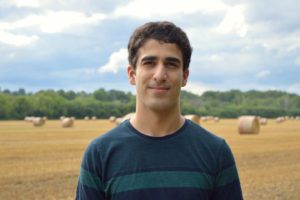Join this month for a chance to win 1 of 3 pairs of AirPods. Join now
Attend a free online retirement planning workshop. Register
Join this month for a chance to win 1 of 3 pairs of AirPods. Join now
Attend a free online retirement planning workshop. Register
Dr. Paula Rochon holds a number of impressive positions with several prestigious organizations and institutions. We know her best as the RTOERO Chair in Geriatric Medicine at the University of Toronto. But for a very special group of student trainees, she is not only a professor but also a mentor. Every year, Dr. Rochon accepts a small number of students into the Women’s College Hospital trainee program. These trainees are the future of geriatric medicine.
In this four-part series, we will introduce you to these innovative minds and give you a sneak peek at their research initiatives and the role Dr. Rochon plays in each of their careers and the essential role she fulfills as a teacher and mentor. We’ll find out what inspires these interns to pursue the field of geriatrics and where their future aspirations lie.

Nickrooz: Our project is focused on investigating the disparities between older women and men and their health care outcomes. We have been systematically reviewing literature which demonstrates that older women are marginalized. Society, as a whole, doesn’t look at older women as a unique sub-group that needs to be researched independently, especially in health care. It’s extremely important to provide this perspective in our education as it determines how doctors practice in the future. It’s important that we recognize the symptoms that are unique to older women so we can provide better care. We also need to include research and data on the lives of older women. As we became aware of challenges that are unique to older women, we can help develop solutions to these challenges.

Joshua: While I’m only going into 3rd-year medicine, I haven’t explored all the different specialties. This project has really solidified that I want to be seeing older adults in my practice, regardless if it’s in primary care or a more specialized field.
Nickrooz: I’m also going into 3rd-year medicine and am leaning towards internal medicine and working with older adults. One of the reasons I decided to work with Dr. Rochon is because of her expertise and advocacy in working with geriatrics.
Joshua: Yes, we have a mentor/mentee relationship which is more encompassing than that of student/teacher.
Joshua: Dr. Rochon is an all-encompassing mentor who offers advice and guidance in both my academic career and in my life. Dr. Rochon, her leadership team and the Women’s Age Lab focus on organization and leading by example. She has a definite interest in my future and I’ll never forget a very meaningful question she asked me: “Is there anything I can do to support you?” The question had a broad scope and made me think about the people she could connect me with who can help me explore the field of geriatrics and what life is like as a geriatrician. I’ve also realized through Dr. Rochon’s leadership is that there is limitless potential in what you can advocate for. The journey to discover your true passion can take time – allow yourself that time to find your place.
Nickrooz: Having Dr. Rochon as a mentor is like an apprenticeship. Following Dr. Rochon and the work she does is really inspiring. Her work is not just about data crunching; she promotes good health for people who are vulnerable, in her case geriatric patients and generally women. Being able to learn from Dr. Rochon who is a leader in her field is a real privilege. Having Dr. Rochon as a mentor and having the opportunity to work with the Women’s Age Lab, I learned that research isn’t just about data, numbers and publications – research in and of itself is advocacy. Dr. Rochon also instilled in me that you have to take the time to investigate everything you are passionate about to find your own niche.
Joshua: I hope to work in the community to advocate for vulnerable populations. Ideally, I will have an independent practice where I can conduct my own research and projects on community-level challenges. Older adults will hopefully be part of my practice and a topic of my research. I really hope that I find my research passion and my own niche – the way Dr. Rochon has.
Nickrooz: I lean towards the academic side of medicine. My hope is to be practicing medicine in a hospital setting and parallel that with a research program on the side. Overall, I think that research into older populations, regardless of my specialty will be a cornerstone of my work.
Joshua: Take the time and the risk to explore your ideas and your passions. Take advantage of the resources, expertise and mentorship at your disposal.
Nickrooz: The emphasis on mentorship is very significant. When you find the right person, who is willing to listen and talk to you about your ideas, take advantage of that opportunity. Dr. Rochon is so kind with her time and she is an amazing resource. She is happy to help guide you on your path in both medicine and research!
For a copy of this published work, contact [email protected].
Read part 1: Keshini Sriarulnathan – The impact of ageism during COVID-19: a survey of retired members of the education community
Read part 3: Hana Brath – Designing nursing homes with older women in mind
Read part 4: Parya Borhani – Exploring the role of implicit gender bias among physicians on prescribing cascades in older adults